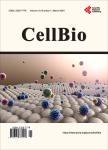The Effect of Ultra Low Concentrations of Some Biologically Active Substances on the Aerobic Respiration
The Effect of Ultra Low Concentrations of Some Biologically Active Substances on the Aerobic Respiration作者机构:Cascade-Medical Reference Laboratory UBI Glevakha Ukraine
出 版 物:《CellBio》 (细胞生物学(英文))
年 卷 期:2016年第5卷第1期
页 面:1-13页
学科分类:1002[医学-临床医学] 100214[医学-肿瘤学] 10[医学]
主 题:Energy Metabolism Ultralow Concentrations Succinate Dehydrogenase Glycerol-3-Phosphate Dehydrogenase
摘 要:For today it is known, that primary and secondary disorders of the aerobic respiration, which are based on mitochondrial deficiency, lead to a wide spectrum of clinical manifestations and diseases. Therefore, the question about effective correction of various types of energy exchange disorders remains topical. Thus, the aim of our work was the study effect of the complex of biologically active substances (BAS) in ultra low concentrations on the activity of key enzymes of aerobic energy metabolism succinate dehydrogenase (EC 1.***.99.1) (SQR) and mitochondrial glycerol-3-phosphate dehydrogenase (EC 1.***.99.5) (GPD2). The human lymphocytes assays were tested in vitro (22 donors). In negative control lymphocytes, cell culture normal saline solution was added. Normal saline solution with NaN3 was added in positive control lymphocytes cell culture. Experimental cell culture contained NaN3 and BAS. Our investigations had been revealed increase SQR activity in the experimental cell culture as compared with positive control culture throughout the time of experiment (measurements were carried out at 4, 24, 48, 72 h of incubation). The SQR activity of experimental cell culture and negative control lymphocytes cell culture was equal up to 24 h of experiment. It showed neutralization of NaN3 inhibitory effect (during 24 h) due to BAS influence. Activity of base glycerophosphate shunt ferment GPD2 of experimental lymphocyte cell culture was not different from GPD2 index in the negative control, but was lower than GPD2 activity in the positive control. It also indicated neutralization NaN3 inhibitory effect due to BAS influence. So we had found that extremely low concentrations of selected BAS with their complex impact on human lymphocytes in vitro could effectively neutralize the inhibitory effect of NaN3 on processes of aerobic energy metabolism link.



